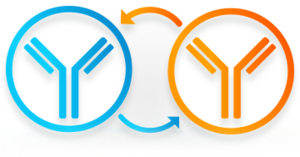Quebec, Canada has announced a biosimilar switching policy, which is expected to generate annual savings of CA$100 million at its conclusion in 2022.
Following British Columbia [1], Alberta [2] and Ontario [3], Quebec has been added to the list of Canadian provinces with a biosimilar switching programme. In May 2021, the Government of Quebec announced a plan to phase out originator biologicals and replace them with biosimilars.
Under the policy, all patients in Quebec receiving biological drug treatment will be switched to a biosimilar (from the list of medications covered by the basic prescription drug insurance plan) by April 2022.
There are a number of exceptions to the scheme, including:
- Pregnant women who will be switched to a biosimilar in the 12 months after childbirth
- Paediatric patients who will be switched to a biosimilar in the 12 months after their 18th birthday
- Patients who have experienced two or more therapeutic failures while being treated with a biological drug for a chronic disease, who will not be switched to a biosimilar.
Commenting on the scheme, Christian Dubé, Minister of Health and Social Services for Quebec, said: ‘Innovation gives rise to incredible medical advances and the development of practices and care offers that are always better adapted to people's needs. The decisive shift we are initiating towards the judicious use of biosimilar drugs is a good example of this. I am convinced that this will help ensure the sustainability of our health system. We are committed to the health of the population and the actions taken on this issue are in the interest and benefit of patients’.
Mr Dubé says the policy will generate annual savings of more than CA$100 million, to be reinvested into the healthcare system. The statement from Mr Dubé also said that manufacturers of reference biologicals had been informed of the policy, that exchanges will take place with the main partners and associations of the health and social services network, and that additional information and resources will be made available to support healthcare professionals and patients through the switching process.
Biosimilars Canada, the association representing biosimilar manufacturers in Canada, welcomed the news and congratulated the Government of Quebec and Mr Dubé. ‘Biosimilars Canada congratulates the Government of Quebec and Minister Dubé for prioritizing the expanded use of biosimilar medicines in the province to generate important savings and reinvest in Quebec's healthcare system’, said Michel Robidoux, Chair of Biosimilars Canada.
Biosimilar switching policies continue to expand in Canada [4], in British Columbia, for example, adalimumab has recently been added to the switching programme [5].
Related articles
Alberta Biosimilars Initiative: switching policy updates in Canada
Biosimilar infliximab uptake in Canada
Low levels of biosimilar uptake in Canada
| LATIN AMERICAN FORUM The brand-new section the ‘Latin American Forum’ on GaBI has been launched. The objective of this new section is to provide you with all the latest news and updates on developments of generic and biosimilar medicines in Latin America in Spanish. View this week’s headline article: Solicitudes de biosimilares bajo evaluación de la EMA - julio de 2021 Browse the news in the Latin American Forum! Register to receive the GaBI Latin American Forum newsletter. Inform colleagues and friends of this new initiative. LATIN AMERICAN FORUM Se ha lanzado la nueva sección del ‘Foro Latinoamericano’ sobre GaBI. El objetivo de esta nueva sección es brindarle las últimas noticias y actualizaciones sobre desarrollos de medicamentos genéricos y biosimilares en América Latina en español. Vea el artículo principal de esta semana: Solicitudes de biosimilares bajo evaluación de la EMA - julio de 2021 Explore las noticias en el Foro Latinoamericano! Regístrese para recibir el boletín informativo GaBI Latin American Forum. Informe a colegas y amigos sobre esta nueva iniciativa.
|
References
1. GaBI Online - Generics and Biosimilars Initiative. Canada’s British Columbia to switch patients to biosimilars [www.gabionline.net]. Mol, Belgium: Pro Pharma Communications International; [cited 2021 Jul 30]. Available from: www.gabionline.net/policies-legislation/Canada-s-British-Columbia-to-switch-patients-to-biosimilars
2. GaBI Online - Generics and Biosimilars Initiative. Concerns raised as Canada’s Alberta plans to switch patients to biosimilars [www.gabionline.net]. Mol, Belgium: Pro Pharma Communications International; [cited 2021 Jul 30]. Available from: www.gabionline.net/policies-legislation/Concerns-raised-as-Canada-s-Alberta-plans-to-switch-patients-to-biosimilars
3. GaBI Online - Generics and Biosimilars Initiative. Ontario becomes third Canadian province to switch patients to biosimilars [www.gabionline.net]. Mol, Belgium: Pro Pharma Communications International; [cited 2021 Jul 30]. Available from: www.gabionline.net/biosimilars/general/Ontario-becomes-third-Canadian-province-to-switch-patients-to-biosimilars
4. GaBI Online - Generics and Biosimilars Initiative. Canadian provinces expand their use of biosimilars [www.gabionline.net]. Mol, Belgium: Pro Pharma Communications International; [cited 2021 Jul 30]. Available from: www.gabionline.net/biosimilars/general/canadian-provinces-expand-their-use-of-biosimilars
5. GaBI Online - Generics and Biosimilars Initiative. British Columbia adds adalimumab to biosimilar switching programme [www.gabionline.net]. Mol, Belgium: Pro Pharma Communications International; [cited 2021 Jul 30]. Available from: www.gabionline.net/biosimilars/general/british-columbia-adds-adalimumab-to-biosimilar-switching-programme
Permission granted to reproduce for personal and non-commercial use only. All other reproduction, copy or reprinting of all or part of any ‘Content’ found on this website is strictly prohibited without the prior consent of the publisher. Contact the publisher to obtain permission before redistributing.
Copyright – Unless otherwise stated all contents of this website are © 2021 Pro Pharma Communications International. All Rights Reserved.
Source: Government of Quebec








 0
0











Post your comment